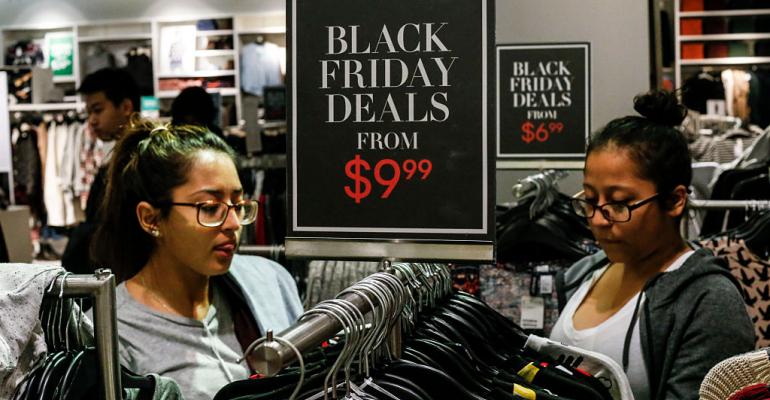By now, the list of retailers that have vowed to close up shop on Thanksgiving Day is no less than 75. One major landlord, CBL & Associates Properties Inc., also announced that its retail properties will go dark in the run up to Black Friday, accounting for about 62 centers.
This is the second consecutive year that CBL has decided to close its malls on Thanksgiving Day, a decision that officials said was prompted in part by negative feedback from consumers and employees.
“We employ about 100,000 people at the malls, including the employees of retailers, security and maintenance,” says Stephen Lebovitz, CBL’s president and CEO. “There are a significant number of people who can spend the day with families.”
The decision to close stores does not mean landlords and retailers will starve their companies’ bottom lines while indulging in traditional holiday feasting. The National Retail Federation (NRF) expects 2017 holiday sales in November and December to increase between 3.6 percent and 4.0 percent for total sales of $678.75 billion to $682 billion. That haul excludes sales at restaurants, as well as gasoline and automobile sales.
As for Thanksgiving spending, the NRF estimates that in 2014—the most recent year for which that particular data is available—the three-year rolling average was $404, lower than the estimated three-year rolling average amount spent in 2013, $410.
Over Thanksgiving weekend Black Friday remained the most popular day for shopping, as 65 percent of spending occurred on that day in 2014. Thanksgiving Day never accounted for more than 32 percent of shopping, which occurred in 2013 and 2014, according to NRF estimates of spending on individual days throughout the Thanksgiving weekend.
At centers run by CBL, retailers reported that they did more business on Black Friday, Lebovitz says.
“Over the course of the weekend the business we conducted was roughly the same over a three-day period as it had been over the three-and a half-day period,” he says. “We felt that we were not hurting our retailers by not opening, and we were doing something that was very important to our employees and our customers.”
RetailNext, a San Jose, Calif.-based provider of shopper analytics to retailers and malls, predicted that holiday retail performance for 2017 should increase by 3.8 percent on a year-over-year basis. Not all retail segments would be so fortunate, however. RetailNext predicts that department stores and larger format retailers will struggle to keep up with the sales gain, and even see sales drop between 3.0 percent and 4.0 percent. Top seasonal performers are likely to include off-price retailers, warehouse clubs, home improvement stores and specialty stores in the men’s fashion, home furnishings and jewelry segments.
Based on contemporary consumer habits, holiday shopping has already gotten underway, Ray Hartjen, a spokesman for RetailNext, said in an email response.
“Certainly, retail brands are in full holiday mode the moment trick-or-treaters hit the bed on October 31,” he says.
For the better part of a decade, full holiday mode often led retailers to offer aggressive promotions to customers coming into their stores on Thanksgiving Day. Yet the earnings from the promotions did not always help the margins of those companies, Hartjen notes.
“The fourth quarter, the quarter where a retailer's economic model was depended on profits, became one of the worst profit-producing quarters of the year,” he said.
Landlords and retailers are certainly hoping for a profitable fourth quarter, holiday season and full year, but the idea of closing up shop on Thanksgiving Day continues to catch on. One of the most iconic shopping centers in the U.S., the Mall of America in Bloomington, Minn., noted on its website that most retailers would remain closed on Thanksgiving Day.

